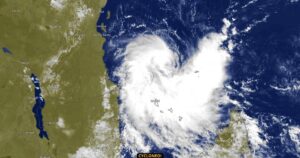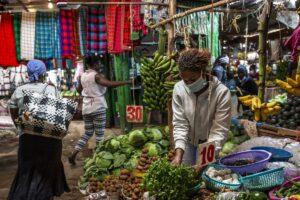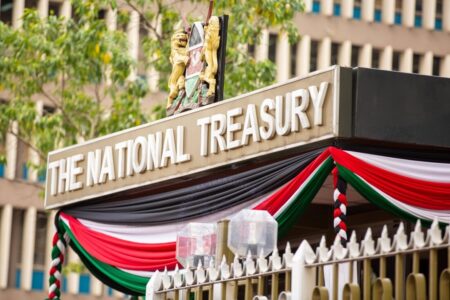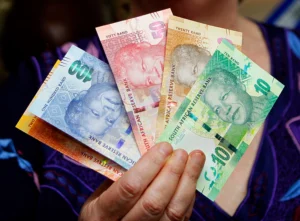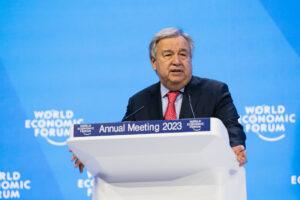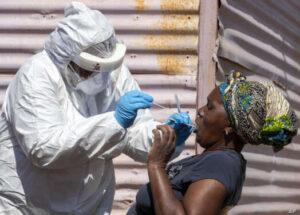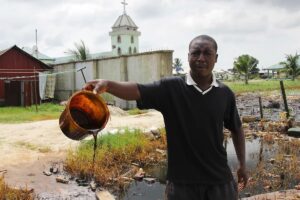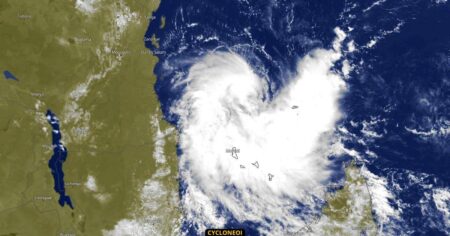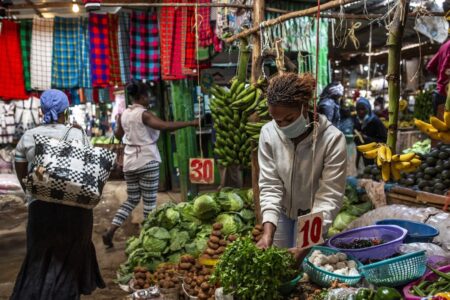- Kenya, Tanzania braces for torrential floods as Cyclone Hidaya approaches
- EAC monetary affairs committee to discuss single currency progress in Juba talks
- Transport and food prices drive down Kenya’s inflation to 5% in April
- Payment for ransomware attacks increase by 500 per cent in one year
- History beckons as push for Kenya’s President Ruto to address US Congress gathers pace
- IMF’s Sub-Saharan Africa economic forecast shows 1.2 percent GDP growth
- The US Congress proposes extending Agoa to 2041, covering all African countries
- Millions at risk of famine as fuel tax row halts UN aid operations in South Sudan
Premium
- Kenya’s forex reserves dipped to $6.2 billion on May 19, an eight-year low, before a slight improvement to $6.4 billion on May 26.
- At $6.4 billion, Kenya’s reserves are just 3.60 months of import cover, which is below the Central Bank of Kenya’s desired target.
- What’s more, the reserves are below the East Africa Community preferred threshold of 4.5 months of import cover, hence exposing the country to high volatilities in the global market.
A dip in export earnings, coupled with reducing diaspora inflows at a time of huge debt repayments have left Kenya grappling with low forex reserves, raising concerns on the health of East Africa’s economic powerhouse.
The low forex reserves are further compounding the dollar shortage problem that has been gripping importers for months. Importers, mainly in the manufacturing and the energy sectors, have been struggling to secure the greenback to replenish their suppliers.
Kenya’s forex reserves
…According to SWIFT, African regions with strong integration saw increased use of local currencies and decreased use of hard currencies such as the US dollar. For instance, the use of the West African franc by the eight countries in the West African Economic and Monetary Union has overtaken the South African rand and the British West African pound.
This implies that boosting the use of regional currencies will shield the African trade market from adverse global conditions associated with the performance of US dollars. However, further regional coordination remains necessary to build a continental payment system that encourages the use of local correspondent banks and local currencies. These moves can help in managing currency depreciation to boost African trade finance. …
Into a menacing economic quick sand African economies have been sinking, taking hefty blows from numerous unprecedented challenges birthed by the overarching global crisis. The status quo has instigated a clarion call to cushion them from dipping further beneath the horizon, by casting different viable iron rods, as the ‘one shoe fits all’ approach is not feasible due the dynamic nature of African economies. Inarguably, Africa has not been left unscathed amid the ongoing global ‘polycrisis’, as described in the 2023 World Economic Forum’s (WEF) Global Risks Report, to mean a cluster of related global risks with compounding effects, such that the overall impact exceeds the sum of each part.
In light of this, on day three of the WEF in Davos, Switzerland, UN Secretary General António Guterres in his speech, stated that at present the world faces “a category five” storm of challenges that need urgent action. These include …
In this case, investing in data is crucial for developing economies. Hence—over time—different organisations such as the World Bank (WB) and the World Economic Forum (WEF) have rallied for the utilization of data and promoting data democratization for effective development planning.
The value of data is vast and elongates further especially in emerging economies. According to a January 2021 publication by WEF, there are more things to explore when it comes to data and Africa has been painted as one of the interesting places on the planet with sufficient opportunities.
…
The late Magufuli is celebrated and mourned across the East African Community which has also joined hands with Tanzania to remember his legacy—which extended from his fight against corruption and the misuse of public resources to his diplomatic relations, forged across the landscape through several regional communities—where on numerous occasions he had declared that ‘we are unified as one’.
Magufuli was a stern advocate of hard work for economic excellence. His voice on this matter was as strong as his willpower. Throughout his unfinished tenure, he had demonstrated how Tanzania can transform its natural wealth and utilize domestic tax collections to fuel development projects. …
The oil and gas industry in Africa is yet another profitable sector that can transform the energy and revenue generation of gas-endowed nations and contribute greatly to their economic development.
According to the global network firm PriceWaterhouseCoopers (PwC), by the end of 2017, Africa had nearly 487.8 trillion cubic feet (Tcf) of proven gas reserves, comprising 7.1 per cent of global proven reserves. …
The pandemic has shown the globe that more is needed to fortify our systems, as nearly 95 million people have contracted the virus and more than two million people have succumbed to it, while millions face the economic shocks of the virus, particularly those located in developing economies.
A World Economic Forum (WEF) publication which is part of The Davos Agenda (a virtual global leaders’ meeting on sustaining an inclusive and cohesive future) noted that the pandemic has exposed several threats to the world. …
The World Bank (WB)—one of the world’s largest sources of funding and knowledge for the developing sphere published its Global Economic Prospect report in January 2021.
The report zoomed in on the prospects of the global economy and Africa, displaying how the region remains pinned by the shocks of COVID-19 unless sound policy changes and strategic investment-enhancing reforms are made.
On the bright side, the global economy is expected to expand by 4 per cent in 2021—this is dependent on the progression of COVID-19 vaccine provision throughout the year. …
The prosperous future of Africa will be the fruit of both men and women. In fact, at present women have the potential to make Africa great. According to the World Bank, it is the African women entrepreneurs who are leading in the world in terms of business ownership.
This means African women stand to transform the region’s economy and compete on the world stage.
Women in Africa are more likely than their male counterparts to engage in entrepreneurship activities. Besides, women in Africa compose nearly 58 per cent of the region’s self-employed population (Ideas4development 2020).
A 2020 World Bank report, Profiting from Parity, indicated that women entrepreneurs across Sub-Saharan Africa continue to garner lower profits than men (34 per cent less on average).
Nonetheless, there is more work to be done in enabling women access equal representation within political and economic opportunities which are crucial for sustainable development.
Despite Rwanda …
